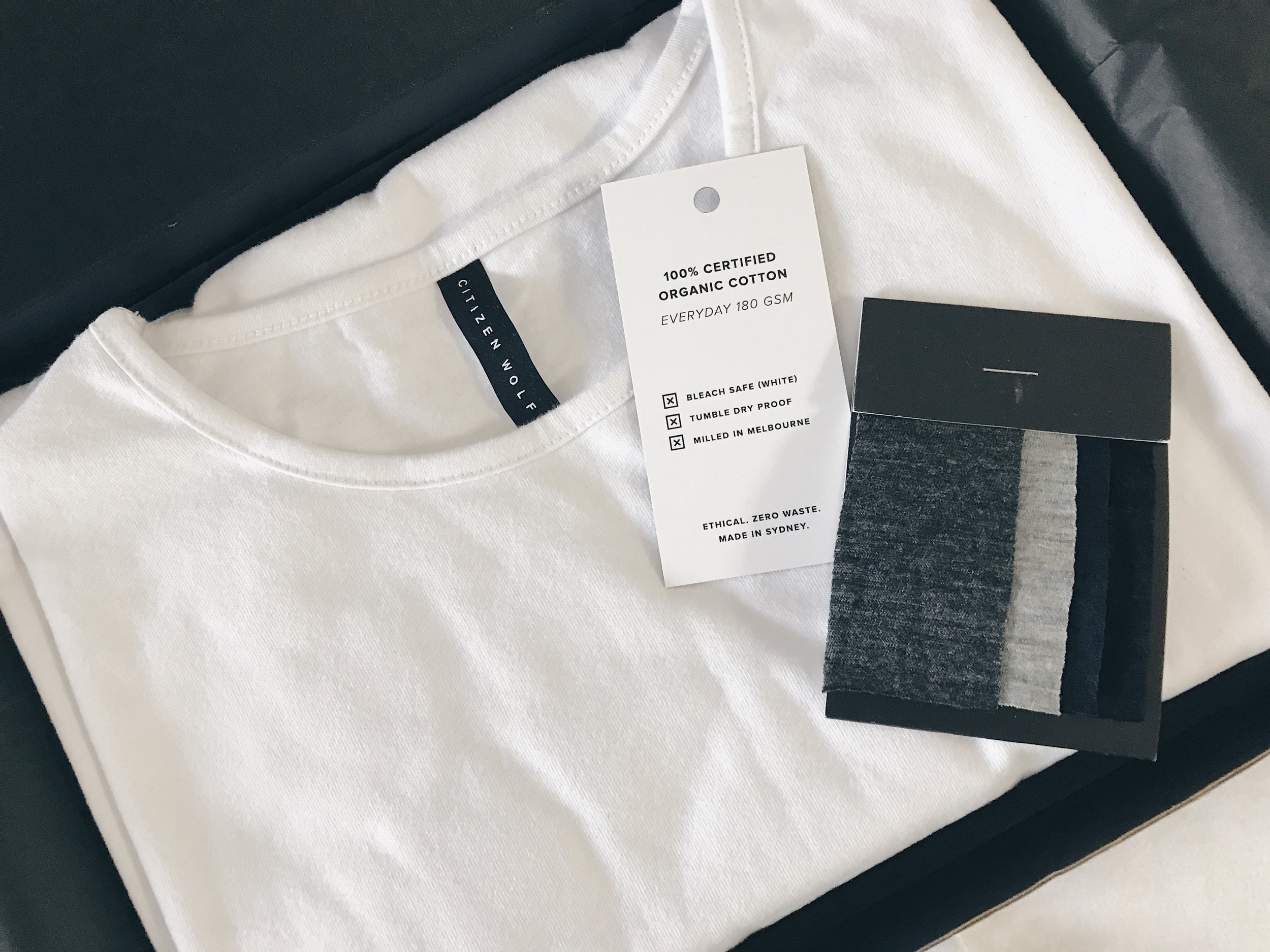Brand Spotlight: Lois Hazel
/Founded in Melbourne, Australia in 2015, Lois McGruer-Fraser, armed with a background working for large fashion houses overseas and a desire to combine fashion with honesty, set about creating her timeless and chic label Lois Hazel. Almost three years down the track and Lois has created a brand that epitomises what it means to be transparent, achieves responsible and sustainable fabric sourcing, and has built it's foundations on strong relationships with local factories and seamstresses. Read my Q&A with the pioneer herself to learn more about this game changing fashion label and visit Lois Hazel to view the latest range...you won't be disappointed!
What was your inspiration behind starting Lois Hazel?
I wanted to create an honest womenswear brand. A brand that didn’t just offer more fashion to the world, but something that gave back too. I wanted to create pieces that my customers would cherish for more than a season, and allow them to be engaged with the brand's story as much as I am, by communicating a transparent supply chain.
Why do you think transparency is so important for the fashion industry?
I think the consumer needs to be more in touch and aware of what is actually involved with making clothes. We interact with them on a daily basis without even really realising that each piece that we wear is made by someone, somewhere. Even the fabric, or the trims have gone through multiple people's hands and it’s time to start bringing that journey into the light and I think being transparent is a great start.
In letting the consumer see the list of people and other businesses involved in each garment hopefully will help them understand why it is so important to make sure each level of the supply chain is being looked after, paid fairly and in a safe working environment. Consumers have the most power to see change happen in this industry, so the more people who ask for transparency in the brands they love, will hopefully shine the light on areas that need improvement in the way the fashion industry currently operates.
Your range is manufactured in house or locally, why is this important to you and the Lois Hazel brand?
Being able to pop over to one of our factories, or have dinner with one of our makers is so incredible. I don’t have to wait months before I can finally touch the final product but rather, I am able to be involved in each step. Making sure everything is being made well, and knowing that the people who make my clothes are able to earn a decent living out of it, and provide more jobs within the industry here in Australia.
How do you go about sourcing fabrics for your collections and why do you choose to incorporate dead stock textiles?
Wall Fabrics is a New Zealand company who specialise in offering dead stock textiles to the market and we work with them each season. Often, I start the design process by heading to their Melbourne showroom where I find at least one fabric that sparks a new range.
I want to start each range here as I know I want to incorporate or even offer majority of my range out of these textiles. In doing this means instead of creating more, I’m able to reuse what is already available and prevent more textile waste going to landfill. It also helps my design process, as often I’m limited in choice which helps me narrow down the concept for each range. Not having the world to choose from in a range does push your creative juices a bit further, allowing me to create unique, limited pieces.
What’s your advice to women who want to build a more sustainable and timeless wardrobe that they’ll love for years to come?
Invest. Don’t be afraid to invest in good quality clothing. Yes sustainable pieces are normally a slightly higher price point, but they are more likely to last you longer, be with you through multiple phases and won’t go out of fashion as soon as the next trend appears. I also feel when you spend more on something, especially with a strong ethical focus, you end up taking more thoughtful care of it and feel a lot prouder when you wear it. Why not look great, feel great and know that you are contributing to something great like a fairer fashion industry.
View the latest range at Lois Hazel












